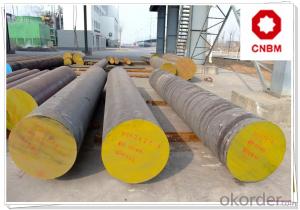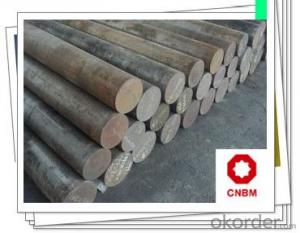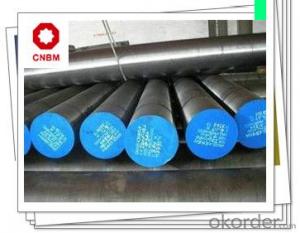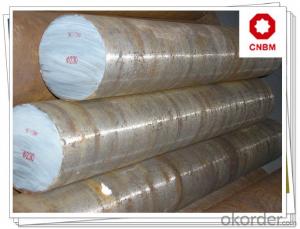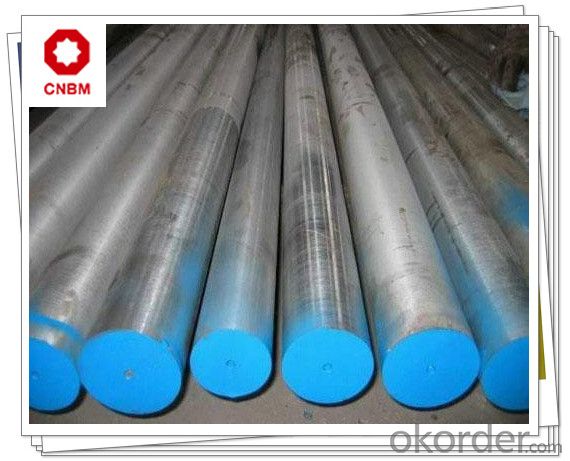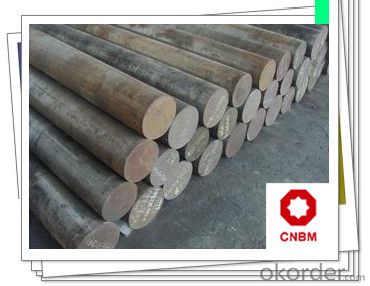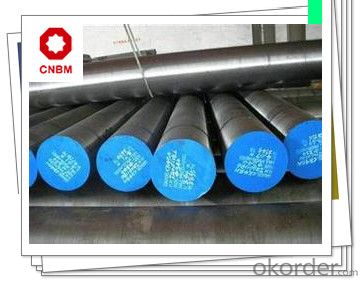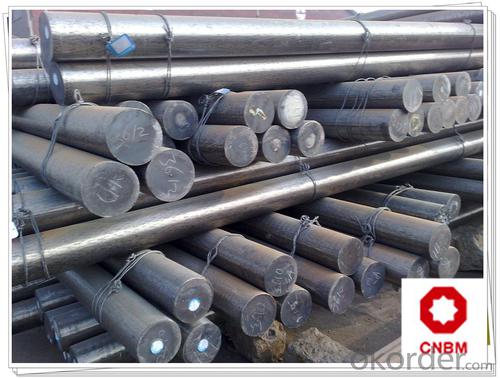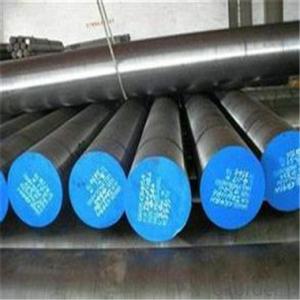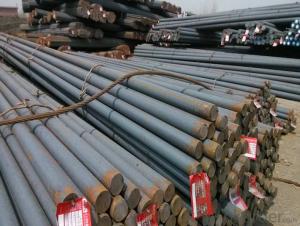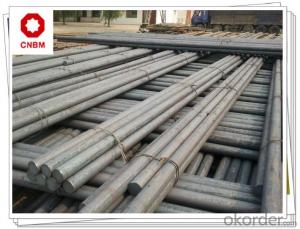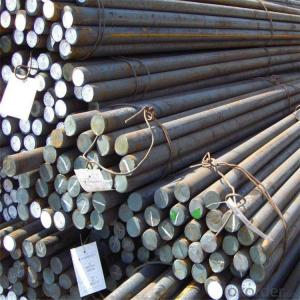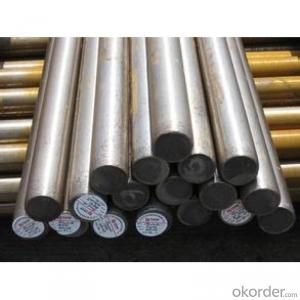Carbon Steel Bar 1020 S20C C22
- Loading Port:
- Shanghai
- Payment Terms:
- TT OR LC
- Min Order Qty:
- 30 m.t.
- Supply Capability:
- 120000 m.t./month
OKorder Service Pledge
OKorder Financial Service
You Might Also Like
Carbon Steel Bar 1020 S20C C22
Specification
Chemical Composition | Mechanical Properties (In Quenched & Tempered State) | ||
C | 0.17-0.23 % | Tensile strength(MPA) | ≥253 |
Si | 0.17-0.37 % | Yield strength (MPA) | ≥245 |
Mn | 0.35-0.65 % | Elongation (δ5/%) | ≥25 |
Cr | ≤0.25 % | Reduction in Area (ψ/%) | ≥45 |
Ni | ≤0.30 % | Impact (J) | ≥ 47 |
P | ≤0.035 % | Impact toughness value αkv (J/cm2) | ≥59(6) |
S | ≤0.035 % | Hardness | ≤156HB |
Cu | ≤0.25 % | ||
1, Diameter: 8mm-250mm rounds
5mm-9mm rods
2, Length: 2m, 3m, 5.8m, 6m or customized
3, Standard: GB, ASTM, AISI, SAE, DIN, JIS, EN
OEM technology - send detailed technical parameters for accurate quotation.
2, Produce Process: smelt iron - EAF smelt billet - ESR smelt billet -
hot rolled or forged to get the steel round bar and plate
3, Heat Treatment: annealing, normalizing, tempering, quenching
4, Surface Treatment: Black, Polished, Galvanized
5, Quality Assurance: We accept third party inspection for all orders.
You can ask testing organizations such as SGS, BV, etc. to test our products before shipping.
Products Show
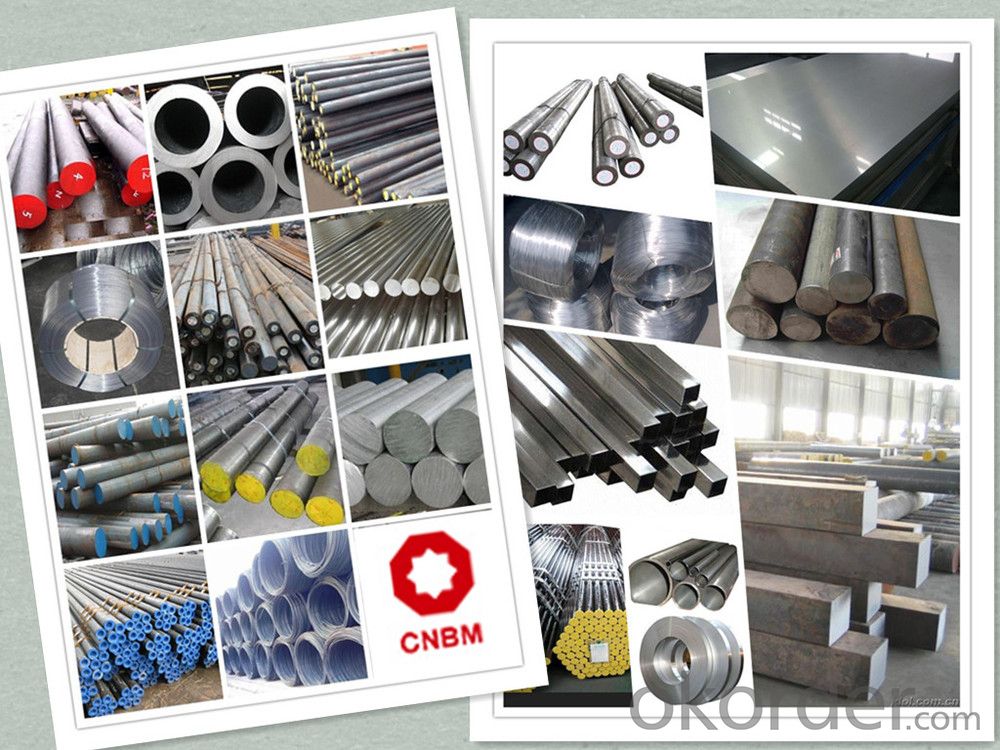
Product Overviews
| Product Name | Typical Grades | Diameter(mm) | Standard adopted |
| Carbon Steel | 20 (1020/S20C/C22) | Ø16-Ø300 |
GB/SAE/JIS/DIN
|
| 40 (1040/S40C/C40) | |||
| 45 (1045/S45C/C45) | |||
| Bearing Steel | GCr9 (51100/SUJ1) | Ø12-Ø250 | |
| GCr15 (52100/SUJ2/100Gr6) | |||
| GCr9SiMn (A485-Gr.1/SUJ3) | |||
Cr-Mo Steel | 20Cr (5120/SCr420H/20Cr4) | Ø12-Ø250 | |
| 40Cr (5140/SCr440/41Cr4) | |||
| 42CrMo(4140/SCM440/42CrMo4) | |||
| Gear Steel | 20CrNiMo | Ø16-Ø600 | |
| 20CrMn(5115/SMnC420/20MnCr5) | |||
| 20CrNiMo(8620/SNCM220/20CrMiMo2) |
Work Shop
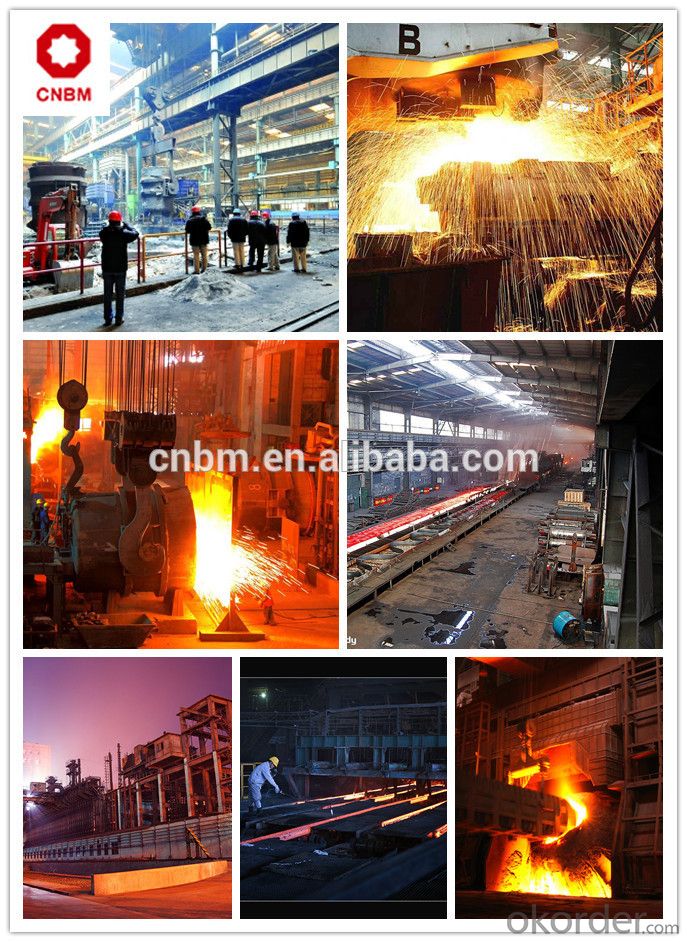
Company Information
CNBM International Corporation is the most important trading platform of CNBM group.
Whith its advantages, CNBM International are mainly concentrate on Cement, Glass, Iron and Steel, Ceramics industries and devotes herself for supplying high qulity series of refractories as well as technical consultancies and logistics solutions.

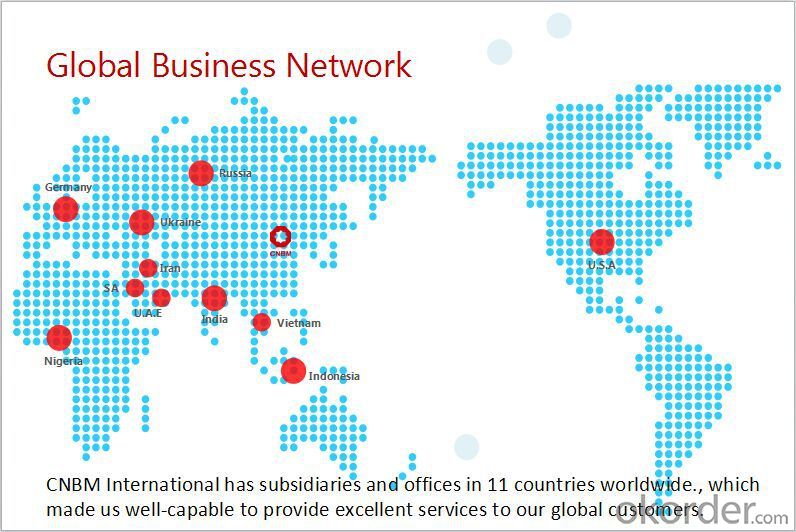
FAQ
1, Your advantages?
professional products inquiry, products knowledge train (for agents), smooth goods delivery, excellent customer solution proposale
2, Test & Certificate?
SGS test is available, customer inspection before shipping is welcome, third party inspection is no problem
3, Factory or Trading Company?
CNBM is a trading company but we have so many protocol factories and CNBM works as a trading department of these factories. Also CNBM is the holding company of many factories.
4, Payment Terms?
30% TT as deposit and 70% before delivery.
Irrevocable L/C at sight.
5, Trading Terms?
EXW, FOB, CIF, FFR, CNF
6, After-sale Service?
CNBM provides the services and support you need for every step of our cooperation. We're the business partner you can trust.
For any problem, please kindly contact us at any your convenient time.
We'll reply you in our first priority within 24 hours.
Packaging & Delivery
1, Packaging: seaworthy package or as required
2, Delivery: 35-45 days or based on quantity
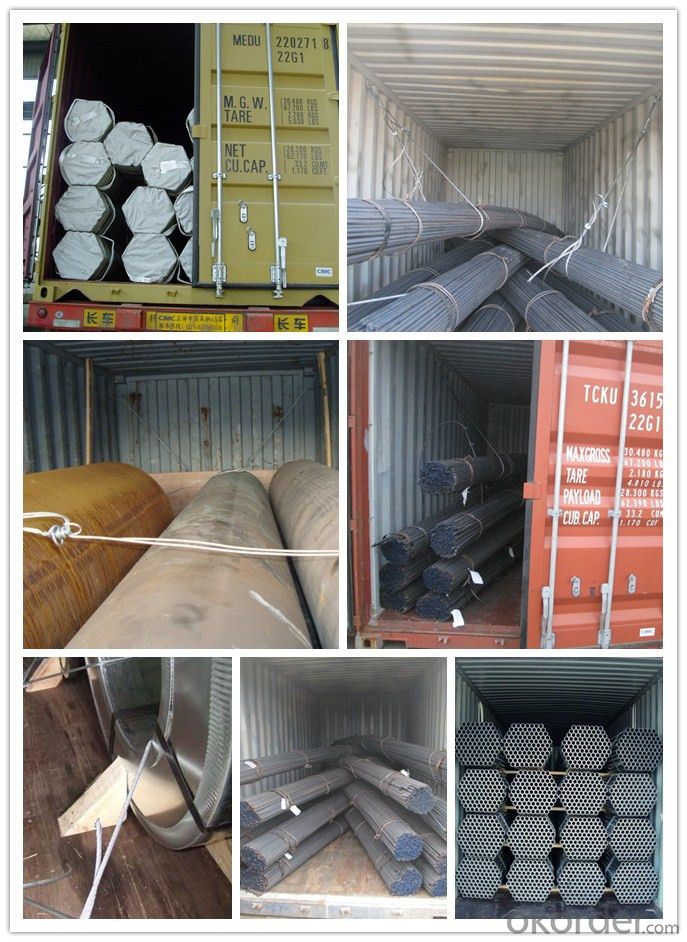
- Q: What is the difference between a centerless ground and a rough turned steel round bar?
- The manufacturing processes and resulting surface finishes of a centerless ground steel round bar and a rough turned steel round bar differ. To produce a centerless ground steel round bar, the bar is fed through a grinding machine. This machine removes material from the surface, achieving precise diameter and roundness tolerances. The bar is rotated between two grinding wheels, while pressure is applied to remove imperfections and create a smooth, polished surface. The end result is a highly accurate and consistent diameter, with a mirror-like finish. This makes it suitable for applications that require tight tolerances and a polished appearance. On the other hand, a rough turned steel round bar is manufactured using a different machining process called turning. In this process, the bar is rotated against a cutting tool, which removes material from the surface to achieve the desired diameter and shape. However, turning does not provide the same level of precision and surface finish as centerless grinding. The resulting surface of a rough turned bar will have visible tool marks and a rougher texture compared to a centerless ground bar. In conclusion, the main distinction between a centerless ground steel round bar and a rough turned steel round bar lies in their manufacturing processes and resulting surface finishes. Centerless grinding offers a more precise diameter, roundness, and smoother surface finish, making it ideal for applications that require tight tolerances and a polished appearance. Rough turning, while less precise and with a rougher surface finish, is still suitable for applications that do not require the same level of precision or aesthetic appeal.
- Q: Can steel round bars be used in the production of flanges?
- Yes, steel round bars can be used in the production of flanges. Steel round bars are commonly used as raw materials for manufacturing flanges due to their high strength, durability, and ability to withstand high pressure and temperature requirements in various industrial applications.
- Q: What's the difference between round steel and other steel bars?
- Different appearance, round steel appearance garden, no grain without rib, other steel surface has carved or ribbed. This causes the round bar and concrete bonding force is small, and other steel and concrete bonding force
- Q: What's the difference between bar and round bar?
- If it is used for machining parts, it can be used in general. However, there are six bar material, and in general circumstances are not fixed feet, and round steel is generally sold according to the length of fixed length
- Q: What are the different types of steel round bars used in the automotive chassis components?
- There are several different types of steel round bars used in automotive chassis components, including carbon steel, alloy steel, stainless steel, and tool steel. Each type of steel offers different properties and strengths, allowing for the production of reliable and durable chassis components.
- Q: What are the different grades of stainless steel round bars?
- Stainless steel round bars are available in various grades, each offering unique properties and characteristics. The most common grades of stainless steel round bars include: 1. Grade 304: This is the most widely used grade of stainless steel round bars. It offers good corrosion resistance, high durability, and excellent formability. Grade 304 is suitable for a wide range of applications, including food processing equipment, kitchen appliances, and architectural components. 2. Grade 316: Known for its superior corrosion resistance, grade 316 stainless steel round bars are often used in marine environments or industries where exposure to corrosive substances is common. It also offers excellent resistance to high temperatures, making it suitable for heat exchangers and chemical processing equipment. 3. Grade 410: This stainless steel grade is known for its high strength and hardness. Grade 410 round bars are often used in applications where resistance to corrosion and moderate heat is required, such as cutlery, pump shafts, and valve parts. 4. Grade 420: With increased carbon content, grade 420 stainless steel round bars offer higher strength and hardness compared to grade 410. It is commonly used in the production of surgical instruments, dental tools, and blades. 5. Grade 430: This grade of stainless steel round bars is known for its good corrosion resistance and formability. It is often used in applications involving decorative trim, automotive components, and kitchen appliances. These are just a few examples of the different grades of stainless steel round bars. It is important to choose the appropriate grade based on the specific requirements of your application to ensure optimal performance and longevity.
- Q: What are the advantages of using nickel-molybdenum alloy steel round bars?
- Nickel-molybdenum alloy steel round bars offer numerous benefits: 1. They possess exceptional strength and durability, making them suitable for high-stress applications. They can withstand heavy loads and ensure long-lasting performance. 2. The addition of nickel enhances their resistance to corrosion, making them ideal for use in industries exposed to chemicals or moisture, such as oil and gas or marine applications. 3. These round bars exhibit excellent heat resistance, allowing them to maintain their mechanical strength and structural integrity in high-temperature environments. This makes them suitable for heat exchangers or power generation equipment. 4. They are easily machinable and can be customized according to project requirements. This versatility makes them adaptable to different applications. 5. They have good weldability, making them convenient for manufacturing processes and construction projects. They can be easily joined to other components or structures using standard welding techniques. 6. Despite their exceptional properties, nickel-molybdenum alloy steel round bars are relatively cost-effective compared to other high-performance alloys. This makes them a cost-efficient choice without compromising quality. In summary, nickel-molybdenum alloy steel round bars offer high strength, corrosion resistance, temperature resistance, machinability, weldability, and cost-effectiveness. These properties make them the preferred choice for various industries and applications that require superior performance and durability.
- Q: Can steel round bars be used in the manufacturing of pumps?
- Yes, steel round bars can be used in the manufacturing of pumps. Steel round bars are often used as the primary material for making pump shafts, impellers, and other critical components due to their high strength, durability, and resistance to corrosion. Their uniform shape and consistent mechanical properties make them suitable for creating precise and reliable pump parts.
- Q: What are the advantages of using molybdenum-alloy steel round bars?
- One of the advantages of using molybdenum-alloy steel round bars is their superior strength and durability. The addition of molybdenum enhances the material's tensile strength and resistance to corrosion, making it suitable for various applications in industries such as manufacturing, construction, and engineering. Additionally, molybdenum-alloy steel round bars offer excellent heat resistance, allowing them to withstand high temperatures without losing their structural integrity. This makes them ideal for use in environments where heat and stress are prevalent, ensuring long-lasting performance and reliability.
- Q: What are the advantages of using niobium-alloy steel round bars?
- Niobium-alloy steel round bars offer numerous benefits. Firstly, they possess exceptional strength and toughness. By incorporating niobium, the steel's strength increases while maintaining its ductility, making it ideal for applications requiring durability and high strength. Consequently, these round bars can withstand heavy loads and shocks without deforming or breaking easily. Secondly, niobium-alloy steel exhibits high resistance to corrosion. Consequently, it proves suitable for use in harsh environments where exposure to moisture, chemicals, or corrosive substances is common. The corrosion resistance ensures that the round bars remain intact and retain their structural integrity over time, reducing the need for frequent replacements and maintenance. Moreover, niobium-alloy steel demonstrates excellent weldability and formability. It can be effortlessly welded and fabricated into various shapes and sizes, making it adaptable to different manufacturing processes and applications. This adaptability enables the production of custom-designed round bars that meet specific project requirements. Additionally, niobium-alloy steel possesses superior heat resistance properties. It can endure high temperatures without losing strength or experiencing significant changes in its mechanical properties. Thus, it proves suitable for applications involving exposure to extreme heat or thermal cycling, such as in the aerospace or automotive industries. Furthermore, niobium-alloy steel is renowned for its exceptional fatigue resistance. It possesses a high endurance limit, enabling it to withstand repeated loading and unloading cycles without experiencing fatigue failure. This quality makes niobium-alloy steel round bars ideal for applications involving dynamic or cyclic loading, such as in structural components or machinery. In conclusion, the utilization of niobium-alloy steel round bars grants advantages such as high strength, corrosion resistance, weldability, formability, heat resistance, and fatigue resistance. These properties make niobium-alloy steel a reliable and cost-effective choice for numerous industries and applications.
Send your message to us
Carbon Steel Bar 1020 S20C C22
- Loading Port:
- Shanghai
- Payment Terms:
- TT OR LC
- Min Order Qty:
- 30 m.t.
- Supply Capability:
- 120000 m.t./month
OKorder Service Pledge
OKorder Financial Service
Similar products
Hot products
Hot Searches
Related keywords

